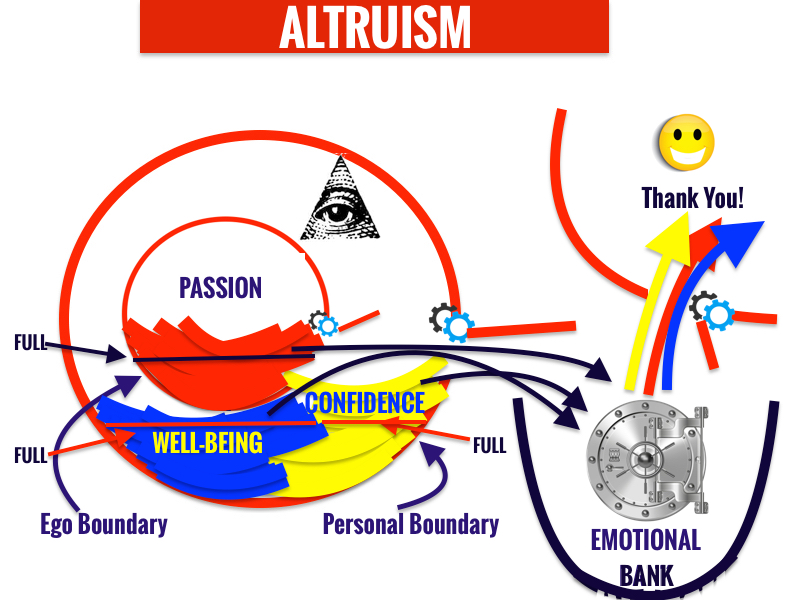Altruism is another virtue we all tend to be taught in school and in religious training. To give alms to the poor, or a tithe, or to share with other children in kindergarten makes sense to teach, but why?
The Evolutionary Psychologists point us toward the concept of kinship and reciprocal altruism among animals, and especially, mammals, where we find an evolutionary advantage in occasionally sharing our resources with other members of the species, especially coming from a point of excess resources. It is simple logic, that to avoid being what they call a free rider on the population, we need to occasionally give, as one invests in a “social bank account,” because there will likely come a time when we need to withdraw from that bank account.
In terms of boundaries, you might see this defense mechanism and virtue as being one that is again, “good boundaries,” because it underscores a recognition that we are not alone in the universe, or the most important person in the world, and others have value too, and need to be respected not merely for their current level of resources, but for the fact that they are also living creatures capable of all the same successes and failures that we are.
In the success of a couple, you might see this social habit - more conscious and intentional than the neurotic, immature, or pathological defenses - as the science-based core of any advice on “investing and withdrawing on a romantic bank account.” This is the kind of tactic built into some of John Gottman’s techniques for couples’ counseling. That we see each other as a place to invest, and a source of resources to rely on too, such that resentment, that great killer of relationships, does not defeat us in the end.
One way of looking at these virtues, which are strengths of one’s boundary - paired with the constructive decision-making it takes to open the door to good things and closing it to the bad - is to envision what life would be like for a couple in its absence. The partner who has no altruism, who is completely selfish, who thinks nothing of having the excess of energy, time, money, or freedom and does not donate any of it to you, in your state of need in one or more of those areas.
Doing this exercise helps us find what we could not tolerate in the absence of the virtue, and what we ought to appreciate, even in small amounts, to have its presence.


